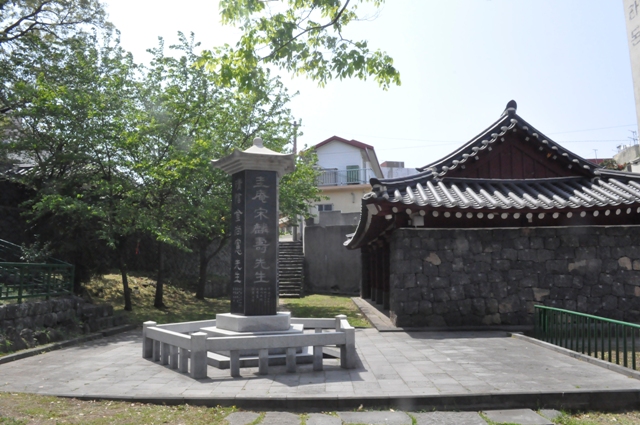|
This series takes a look at highlights of Jeju's nature, culture, food, and more all the way from A through to Z.
Ecotourism
Jeju is home to nature and wildlife, making ecotourism the perfect way to blend tourism with beautiful ecology. Enjoy the outdoors by exploring different craters around the island, including the popular Sangumburi Crater in Jocheon. Or take an underground journey to Manjanggul Cave, one of the finest lava tunnels in the world. But you don’t have to do it alone! Join an eco-party and discover ecological sites with fellow travelers.
| |
 |
|
| ▲ Photo courtesy The Jeju Weekly |
Exile
Throughout Korea’s history, people have been sent to Jeju because it was easier to isolate criminals on an island. During the 500 years of the Choseon Dynasty, about 200 people were sent to Jeju, including some famous Korean scholars. Talented artist Kim Jeong-hui (also known by his pen-name “Chusa”) completed his masterpiece “Sehando” while living in Jeju. You can learn more about him and other famous scholars by visiting the Chusa Exile Road, the Seongnan Exile Road, and the Myeonam Exile Road.
| |
 |
|
| ▲ Photo courtesy The Jeju Weekly |
Expat
The number of expatriates - which refers to foreigners living and working in Jeju - is increasing every year. Foreigners who reside in Jeju include English teachers, freelancers, business people, and spouses of Koreans. They hail from places all over the world, like the US, Japan, Vietnam, India, France, and Russia. The expat community builds relationships with other locals through events like the Expat Festival, where you can enjoy international food and talent.
| |
 |
|
| ▲ Photo courtesy Douglas MacDonald |
Energy
Energy is a global issue, and Jeju is making some positive strides in this area by encouraging renewable energy instead of fossil fuels. Jeju is taking advantage of the natural resources on the island, like wind and solar energy. Gapado, south of Jeju, is the first “carbon-free island” in the world. All the electric power there is generated by renewable energy. There are also regulations, laws, discounts, and charging stations to encourage the use of smart cars around the island.
| |
 |
|
| ▲ Photo courtesy Jeju Special Self-governing Province |
|























